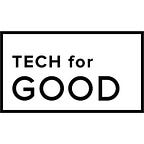Tech for Good + SIE: an interview with Ed Maklouf
(2015)
By: Cat Cochrane
Read below our interview with Ed Maklouf, founder of Gather, about the Tech for Good field in Spain.
How would you describe the “tech for good” field in your country?
Tech for Good in Spain is definitely growing and there is plenty of activity around creating technology to solve or improve serious societal problems. As in many places there is a lack of scaling and sharing solutions — with each city and region more or less “doing its own thing” — and there is also a low capacity for many civil society and community organisations to trial and deploy technology to improve what they do.
What kinds of challenges is technology being used to address?
Like anywhere else there are a massive range of challenges to which tech can be applied. Civic participation is one ‘hot’ area, but there are many initiatives aimed at ameliorating problems such as gender violence, youth marginalisation, environmental damage, and poverty. It’s also worth noting that the Spanish “tech for good” community is not insular, and many of the people working in this field are applying their skill to challenges in Latin America and Africa.
Who are some notable organisations that we should look out for?
Apps4Citizens focuses on apps which aim to create better opportunities for citizens to participate in designing solutions while being in dialogue with institutions.
They stimulate the creation of Apps in the many areas of public and civic life, including:
- Social and political action
- Public services
- Civics
- Inclusion/participation
- Exposing power
- Mobility
- Urban space
- Environment
- Economy
- Logistics/transactions
- Education
- Health
- Culture
Gather, a Barcelona-based team, enables organisations of all kinds to create and deploy mobile apps for crowd participation — covering Democracy Tech, Citizen Journalism, Citizen Science, Ecological monitoring, Research and Crowdsourced data.
Build UP is the leading conference for technology in peace building, bringing technology into the International Development community as a way of addressing peace issues.
Authenticitys is an online platform connecting visitors with local, unforgettable city-based experiences by designing and hosting them with entrepreneurs to curate positive impacts on each location.
Telefonica Foundation is a social program which supports the initiatives of young people aged 15–25, with the mission to ‘Think Big and Participate.’
Starlab has a mission to transform science into technologies with a profound, positive impact on society. In their work designing neuroelectric censors and Parkinson’s Disease field research, Starlab works on the fields of space and neuroscience.
FABLAB Barcelona is one of the leading labratories of the worldwide network of Fab Labs, a small-scale production and innovation centre equipped with digital fabrication tools and technologies for the production of objects, prototypes and electronics.
What about communities — are there specific Tech for Good communities?
The community area is as important as it is hard to define. There are some good examples of rural eco-farming communities being made efficient and effective by adding a tech layer to their enterprise. There are also growing communities which are technologically mediated, but the tech being used is often not specifically designed for community benefits but rather leveraged for good purposes. Community initiatives often need ways to integrate and maintain technological innovation in a sustainable way.
What are the challenges for the Tech for Good field where you are?
The practitioners are fragmented, and there is very little financial support available to help with development and deployment. Adoption is just as difficult for good technologies as it is for commercial tech, and so many projects find themselves with good ideas and technology but limited capabilities to deliver to the people or communities that would benefit.
How do you personally make a distinction between Tech for Good and Tech for Bad?
For me ‘tech for good” is to some extent guided by beneficial outcomes, follows some conditions of sustainability, and sees technology as NON-essential and subordinate to results in the pursuit of the “good.”
Mara Balestrini, a PhD at UCL has developed a framework that describes the characteristics of tech projects that can be adopted by and evolve in communities without constant intervention from the technology makers. So, it is as much about process as it is about product or service and this links to my sustainability point above.
Technology opens up opportunities to do things in different ways, and these can be opportunities to do “good” things, destructive things, bad things etc. In the same way, technology made for profit can often be tweaked or configured to maximise good outcomes too. Integrating pro-social considerations into large commercial and Government projects can have dramatic “good” effects. For example, ambulances drive on our transportation infrastructure, so helpful and beneficial systems could run on our tech infrastructure. What is needed is to view that technology infrastructure as a partially shared resource, imbued with a sense of “public good” and open to adaption like a platform.
